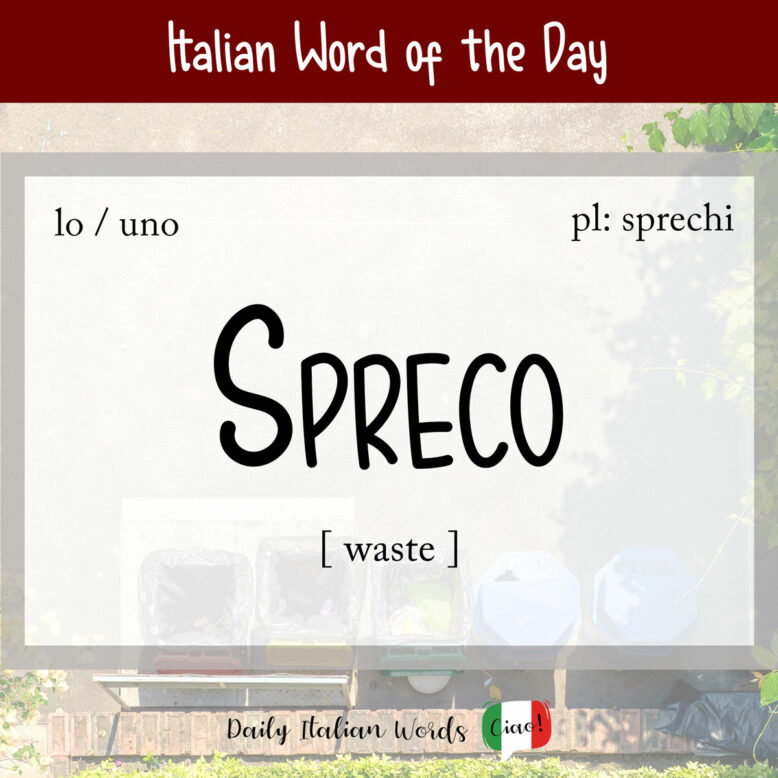A very useful word in Italian is spreco, which translates as waste in English. It refers to the act of using or expending something carelessly or extravagantly to no purpose.
spreco
waste

Spreco is a masculine noun that takes the following definite and indefinite articles:
- lo spreco = the waste
- uno spreco = a waste
- gli sprechi = the waste
- degli sprechi = some waste
Below are a few common expressions using the word spreco:
- uno spreco di tempo = a waste of time
- uno spreco di soldi / denaro = a waste of money
- uno spreco di energia = a waste of energy
- uno spreco d’acqua = a waste of water
- uno spreco di cibo = a waste of food
- uno spreco di risorse = a waste of resources
Tutta quella terapia è stata uno spreco di tempo e soldi!
All that therapy was a waste of time and money!
It comes from the verb sprecare which means to waste or to squander.
Non sprecare l’acqua quando ti lavi i denti. Chiudi il rubinetto!
Don’t waste water when you brush your teeth. Close the tap!
The reflexive version of sprecare is sprecarsi which means to dedicate one’s energy and time to something that isn’t deserving or worthy. In an ironic sense, it can mean engaging in an activity without fully realising your potential or taking advantage of the possibilities at your disposal.
Mario si spreca in lavori di poco conto.
Mario wastes his energy on insignificant jobs.
A term that has recently come into fashion with increased awareness about the climate crisis is spreco zero or zero waste. A zero-waste lifestyle, for instance, is una vita a spreco zero in Italian.

One final term that will come in handy if you want to describe someone who is wasteful is sprecone (and its feminine equivalent sprecona).
Heather Broster is a graduate with honours in linguistics from the University of Western Ontario. She is an aspiring polyglot, proficient in English and Italian, as well as Japanese, Welsh, and French to varying degrees of fluency. Originally from Toronto, Heather has resided in various countries, notably Italy for a period of six years. Her primary focus lies in the fields of language acquisition, education, and bilingual instruction.


